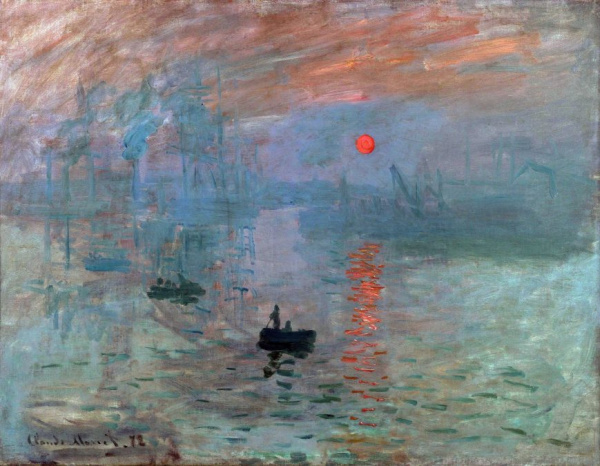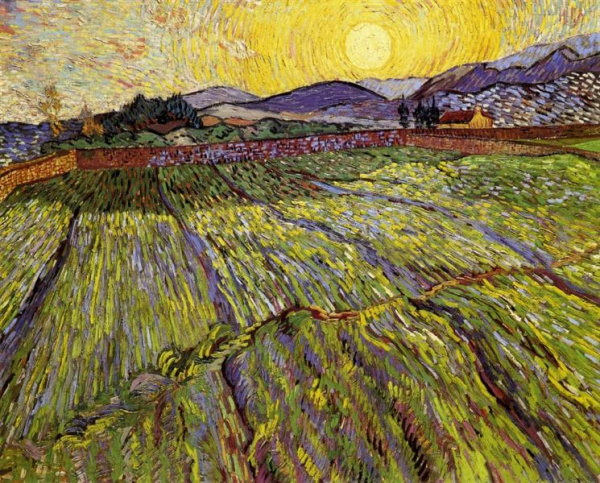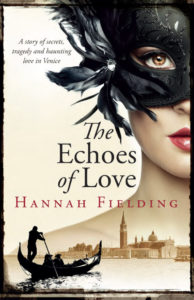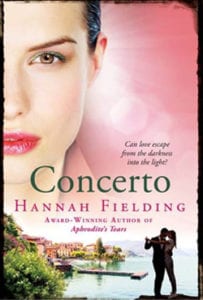Sunrise: the promise of a new day
Sunrise: the promise of a new day
Sunrise: the promise of a new day
-
Hannah
-
Hannah

It was a sunrise that inspired my very first novel. I am an early riser, always have been, and even as a child I used to look out of our home in Alexandria, Egypt, to watch magic unfold: the sun god Ra appearing on the horizon to sail his solar barque across the sky. But it was a Kenyan sunset, viewed as a young woman, that lit the spark in me. The colours! Fire red, burnished amber, the deepest yellow, soft pinks, vivid purples even, set against the dark, rugged landscape.
If I were an artist (and wouldn’t that be fine), I would try to capture all that a sunrise makes me feel in oil paints: cadmium red, burnt umber, yellow ochre. I have always loved how the Impressionists and Post-Impressionists depicted the sunrise; Monet’s Impression, Sunrise has an ethereal, dreamy quality, while the golden hues of Van Gogh’s Enclosed Field with Rising Sun are glorious.

Impression, Sunrise, Claude Monet, 1872 (Musée d’Orsay, Paris)

Enclosed Field with Rising Sun, Vincent van Gogh, 1889 (privately owned)
But I am a writer, not an artist: the pen is my paintbrush, the page my canvas, and so I try to capture in words not only the beauty of the sunrise but also its symbolism, which is so important for us all.
Here is a little tour of just some of the dawns in my novels and how they make my characters feel. Perhaps you too will be inspired to watch the sunrise soon, and as you do, you will know that you are not alone: many others out there are watching that same sun chase away the darkness of the night.
Burning Embers
The novel begins at dawn, with Coral watching the sun rise from the deck of a ship taking her home to Kenya. A stranger comes to stand beside her.
The sky was slowly clearing on the horizon. The black cloak of night began to lift, lazily giving way to a monochromatic dawn of decreasing hues, from indigo to steel blue. The first rays of the African sun broke through in the distance, a sallow slip of color outlining the eastern horizon. Coral felt the stranger looking at her, and heat suddenly rose in her cheeks. Their eyes locked. … It was as if an unspoken affinity had been discovered and a connection established all in a single moment.
Variant tones of pink were gently spreading into the sky, struggling to seep through the symphony of blues. A few moments later the sun burst forth, dazzling in this multicolored canopy, and the dark outline of the landscape gradually loomed on the horizon, transforming first into the dark green, gray, and russet skirt of the jungle before revealing the bush, rising in layers toward the backcountry. Soon after, the port of Kilindini became visible, comfortably tucked away at the end of the estuary in the midst of vigorous vegetation. Coral could see it peeping out from behind serried ranks of coconut palms and wispy casuarinas trees, while its old lighthouse winked with steadfast tranquility in the half light. To complete the picture, the coastline of thin rolling sand dunes appeared, creating here and there immaculate white beaches. Even with her mind awash with childhood memories, Coral found it difficult for her eyes, accustomed to the more sedate English countryside, to take in all at once the opulence of color, the sense of space, and the profusion of brilliant life. The burning sky seemed too blue, the rich soil too red, and the irrepressible vegetation too green. Coral was overcome by emotion, remembering the last time she had seen this landscape.
The Echoes of Love
Here, Venetia takes in a sunrise on the coast of Tuscany, Italy.
Stepping out, she put on her bathrobe and padded to the veranda to watch the dawn come up over Miraggio. She stood leaning against the stone balustrade, her back to the countryside, looking toward the sea. There was no horizon, nothing yet but the soft dusk everywhere so that she couldn’t tell for a while where the sky began. Then, oddly, the sea became darker before the first streaks of colour lit the sky. Venetia wondered what created the unearthly greens and blues and mauves in the sky before the first bars of gold heralded the sun.
Gradually, moment by moment, as she watched entranced, the pale translucent green grew more lovely till at last it seemed as though all tender colours – shiny rose, wisteria, pale blue, the transparent purity of emerald – played on the shimmering fields of the sea, and touched the liquid curves which stretched away and away. Those softly changing colours altered dreamily, as if a divine artist were entertaining kindred spirits with a magnificent show before allowing the sun to bathe the world in molten gold. The array reached up to the horizon and overflowed, spreading over the sea, blotting out the entire colour with sheer light. Colour and light and space … never could one drink enough of such beauty, Venetia thought, as she bathed in that golden glow with her hair rippling gently across her shoulders in the early morning breeze.

Indiscretion
Though Indiscretion is predominantly set in Andalucía, Spain, I’ve chosen to share a dawn in London, because sunrise over a city can be just as moving as one over a beautiful land- or seascape.
She went back to the window; London was deep in slumber. One more night was drawing to an end and nearly four hours of a new day had already passed. … The Thames flowed sluggishly in the nocturnal darkness under the lighted bridges. Trees along the river began to tremble as a gentle wind rose out of the east. Alexandra shivered, instinctively gathering the Spanish shawl more tightly about her shoulders. Soon the sky would flood with a clear pale light as dawn stole slowly and stealthily over the city. The black shadows that had enshrouded the sleeping capital were gradually melting away, one by one. In the street, the lamps were losing their brilliance; simultaneously, in the now greyish sky above, the stars were slowly quenched. And then the misty veil of shadows slowly lifted and the outlines of the scene framed in Alexandra’s window grew gradually firmer, until she saw it clearly and in its entirety. A new day had been born and with it another page of life had been turned.
Concerto
Sunrise is more than just a visual display; it is a time, a moment imbued with meaning and beauty all of its own. In Concerto, my heroine Catriona enjoys the view of the rising sun, but Umberto – who is blind – shows her how much more there is to experience at this time.
The landscape was hushed and of a fiery intensity. Dawn’s vibrant gold light leapt and sparkled over the horizon of Lake Como, bathing the land in summer radiance, gradually burning the heel of night as it spilled its red flames on the countryside. Everything that had been grey was suddenly bright. The dawning sun flushed the rippling waters, which had sparkled like silver under the moon. The golden glow dressed the shoreline and gradually each rock, each villa, each palazzo was veiled with rainbow light. Above, the morning star was a diamond accent from heaven.
‘Buongiorno, mia piccola strega passionale,’ Umberto said, turning and pulling her into his embrace.
Catriona lifted herself on tiptoes and kissed him on the lips. ‘You’re up early.’
‘Dawn comes with a musical silence, the soul hearing the melody that the ears cannot,’ Umberto replied. ‘It’s the best time of day on the lake. Everything seems so quiet to sighted people but, since I lost my sight, I can hear so many hushed noises I wasn’t aware of before.’ He smiled and turned his face upwards in the gentle morning air. ‘You see, amore mio, Como softly whispers to me. I can hear the plop of a jumping fish, the flutter of a bird’s wing as he dives into the water to catch his prey, and the soft murmur of the lake lapping the shore. It’s all music. Sometimes it’s the melody of the lake’s rippling surface as the breeze dances above it, or the sound of the swell as it crashes a symphony over the rocks.’ He sighed. ‘It somehow makes me grateful that I can still hear, smell and feel.’
I will leave you with an extract from one of my favourite poems, by the 19th-century French poet Leconte de Lisle, entitled ‘The Stars Falling’.
Silvery-lipped Dawn
Laughs in the heavens and takes wing;
She puts on a gown of soft flames,
And on the emerald-green billows
Makes golden drops twinkle.
(You can read the full poem on my blog here.)
Picture credits: 1) Rushvol/Shutterstock; 2) and 3) public domain.


